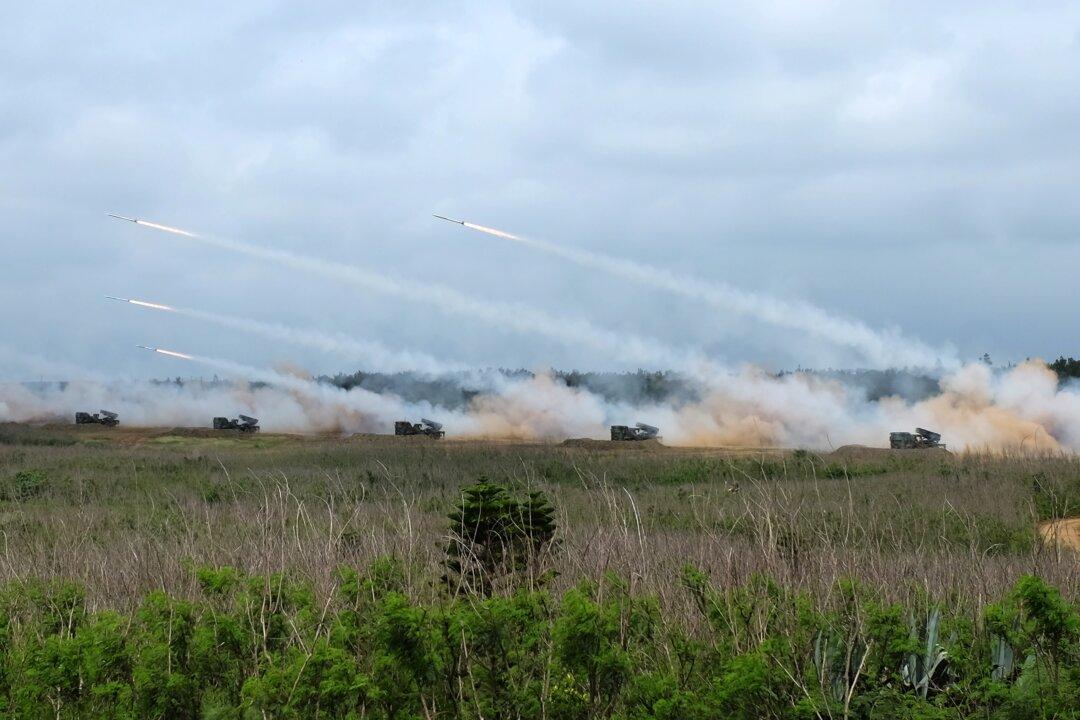Taiwan conducted live-fire missile drills on Monday amid growing military pressure from China’s communist regime.
Surface-to-air missiles, including U.S.-made Patriot PAC II and Taiwan’s own Sky Bow III, were launched in front of reporters who took a rare trip to a sensitive test site on the island’s southeastern corner.





